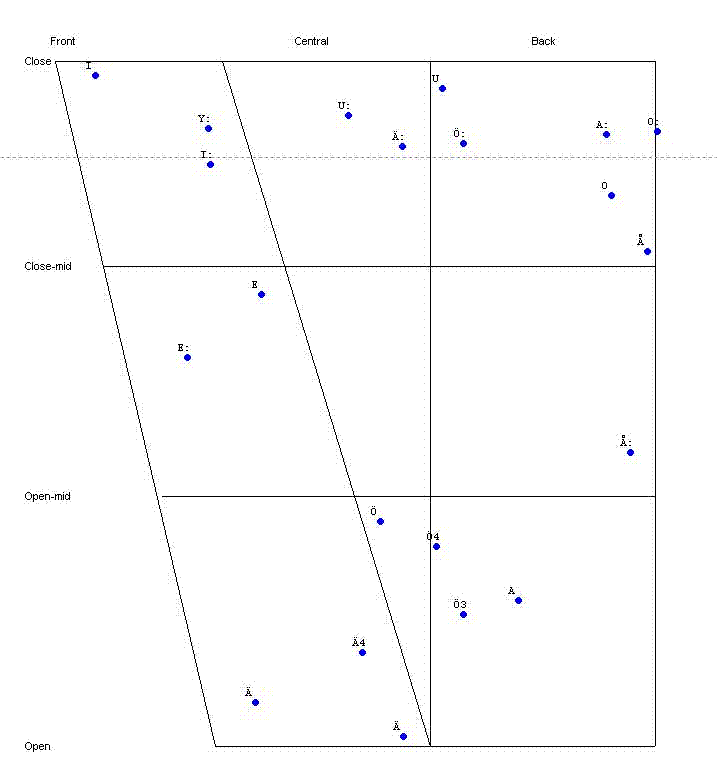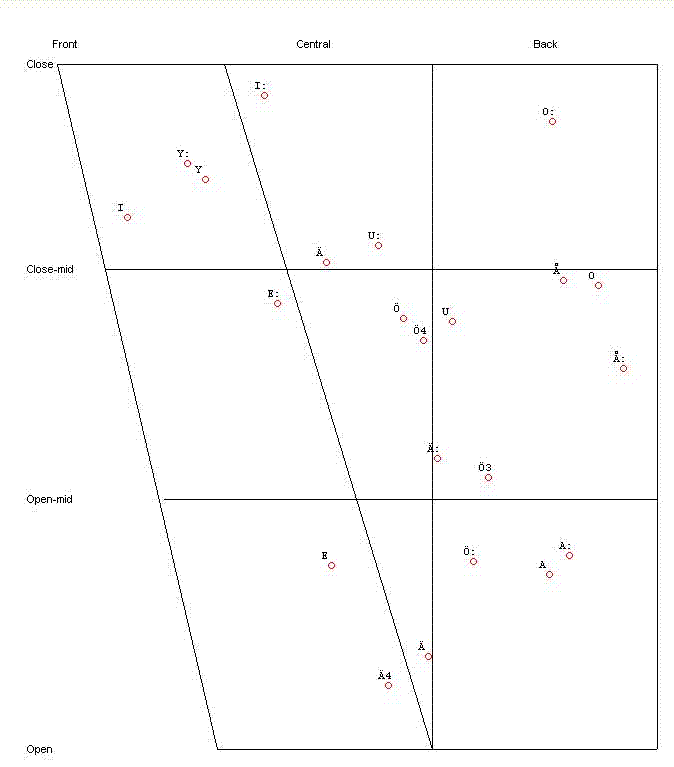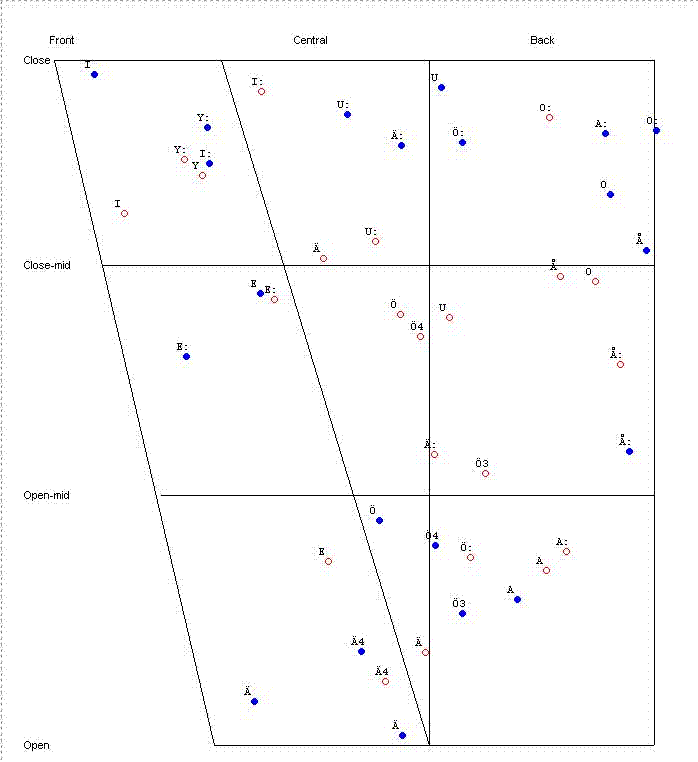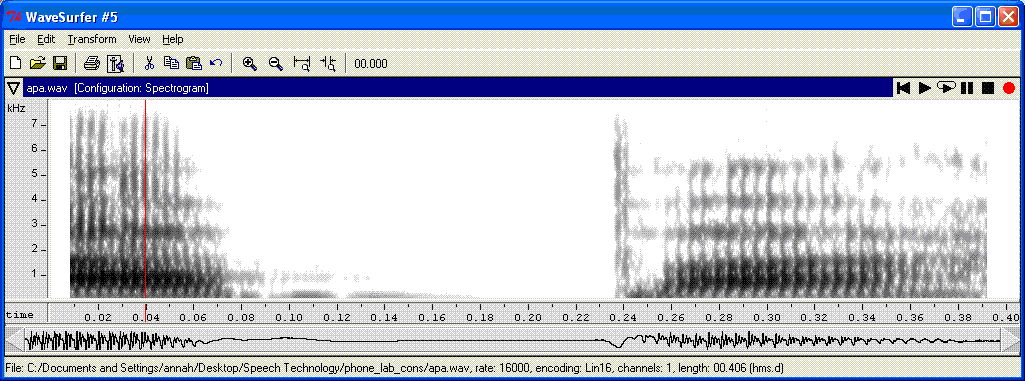Phonetic analysis of my vowels
Vowel analysis
The resonance frequencies of the vocal tract tend to emphasize a series of frequencies that relate to the vocal tract size and shape. However, these frequencies are not sequential in their strength as the vocal tract is not a simple tube but rather a tube of varying sizes and shapes. Sounds classified as vowels are characterized by peaks of energy around the resonance frequencies of the vocal tract. These frequencies are commonly referred to as formants. Each vowel's physical realization has it own unique frequencies at the first and second formant, F1 and F2.
My stressed and unstressed vowels were recorded using WaveSurfer within the carrier sentence "jag sa testordet igen" (I said testword again). The words were example words for Swedish long and short vowels from SAMPA. The example words were cut out from the carrier sentence and the vowels were automatically extracted using an application for formant extraction based on SNACK [reference].F1 and F2 for the vowels are mean frequencies of the sound which was automatically classified by the system as being the vowel.
Unstressed vowels


Formant plot + table
(click for larger images)
Stressed vowels


Formant plot + table
(click for larger images)
A combination of both stressed and unstressed vowels

Formant plot
(click for larger image)
F1 seam to have a large spam for some of my vowels depending on stress (for example E, Ä and A:). It would be interesting to study this irregularity based on more sound examples.
Anna's consonants
Plosives

Examples of "appa" and "atta".
(click for larger picture)
The full stop in these plosives are clearly visable in these spectograms.
Fricatives

Examples of "affa" and "assa".
(click for larger picture)
Nasals

Examples of "amma" and "arra".
(click for larger picture)
'K' in the context of different vowels

Home